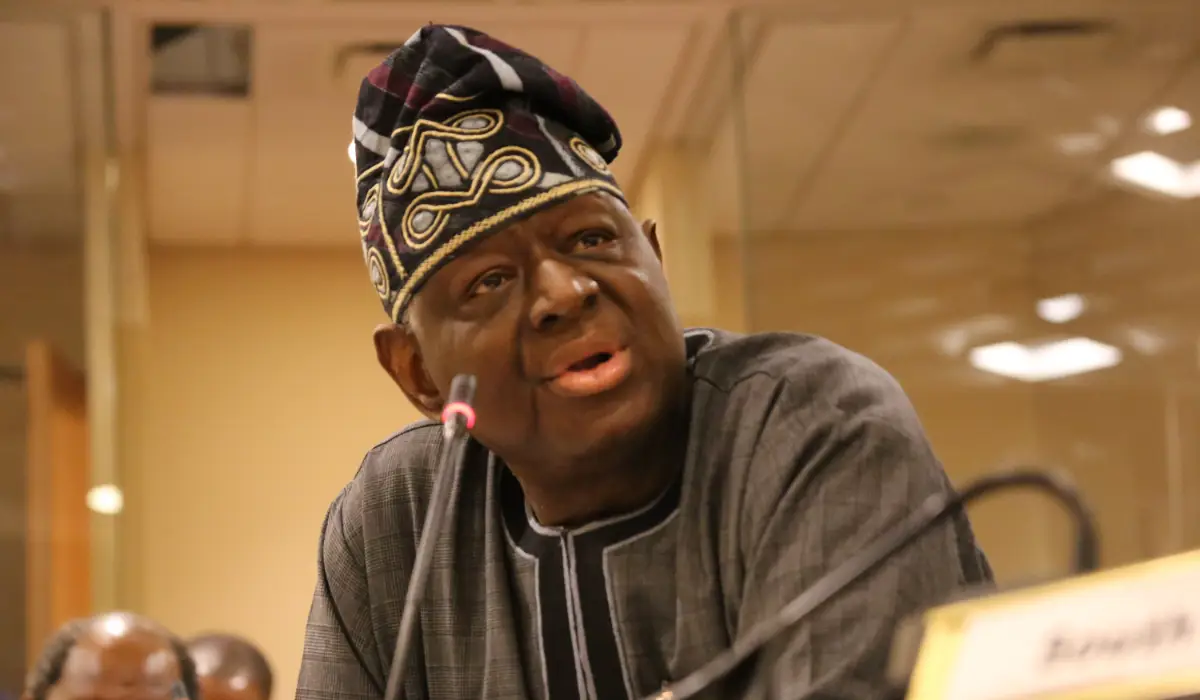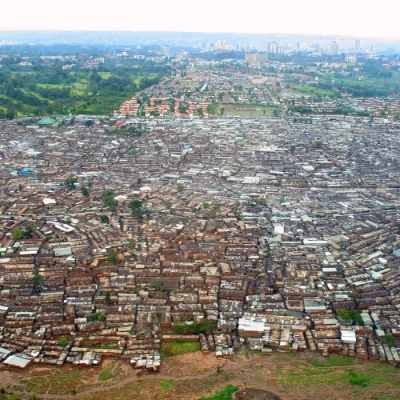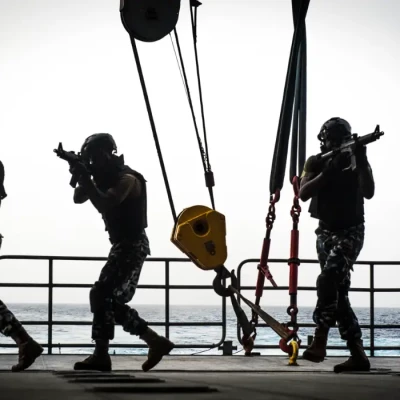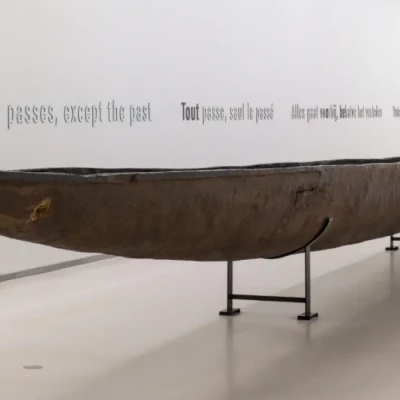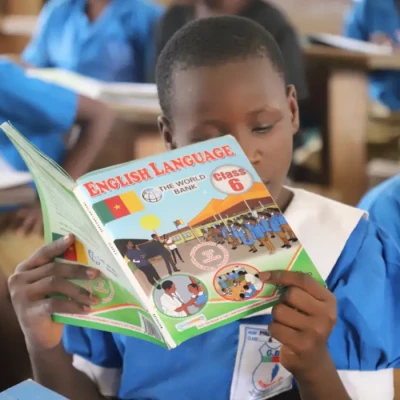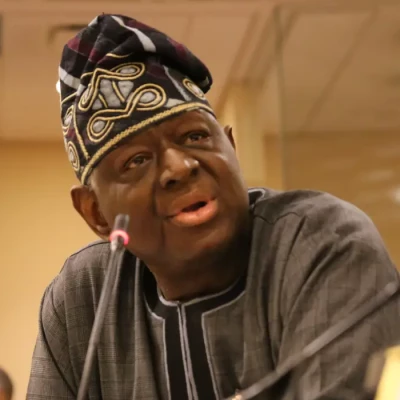After the end of the Second World War in 1945 and the dawn of the new world order, Africa remained passive and accepted the geopolitical realities of the international system without an assertive, unified regional policy. Since the end of the Cold War, little consideration has been given to the African continent in the security and political discussions and decisions of the global powers. However, post 9/11, international security has been redefined, and new challenges have been identified. Thus, at the beginning of the 21st century, Africa is facing a variety of new security challenges and has become an increasingly important battleground in the fight against terrorism. The revolutions, now known as the Arab Spring, that swept through North Africa in 2011 have created new challenges for the African continent and are compounding the African peoples’ efforts towards poverty alleviation, state stability, socioeconomic development, democracy, and good governance.
In addition to the crises of civil war, ethnic conflict, circumvention of constituted term limits, military coups, state insecurity, and rampant corruption at all levels, the COVID-19 pandemic has ravaged global health systems and revealed how vulnerable Africa can be in the midst of global challenges. During this crucial period when the continent is confronted with these myriad security challenges, it needs an effective, decisive and strategic multilateral agenda to achieve the continent’s security aspirations.

This paper argues that Africa’s leadership should position the continent as an independent and equal actor in the international system and provide Africa-oriented political solutions to African problems, especially in security, statecraft and conflict resolution. These goals are captured in the African Union’s (AU’s) Agenda 2063, with one of the goals being to silence the guns, to end all wars and violent conflicts and promote dialogue-based mechanisms for conflict prevention and resolution by 2030. In the contestation of increasing multi-polarity in the international system Africa, once again like the Cold War era, has become a prioritised region in the scramble for power and resources by the global superpowers. The AU must pilot its continental affairs in order to attain its pan-African Agenda 2063, irrespective of the challenges of the new world order.
This paper underscores the AU’s pathways and strategies for providing peace and security in the short term and how AU leadership can deal with the overriding interests of the West, led by the United States and its North Atlantic Treaty Organisation (NATO) allies, and the East, led by Russia, and the penetration of Russian’s Wagner military forces into Africa, and China, with its robust Sino-Africa infrastructural projects in Africa. This new scramble for power, prestige and resources in Africa has disrupted the fragile political framework of African states and can spark wars by proxy if not managed strategically.
In his article ‘On the State of Peace and Security in Africa,’ Olusegun Obasanjo notes that the continent struggles with ongoing outbreaks of civil unrest and conflict. For example, the Ethiopian government forces have been battling separatist Tigray forces, where both sides are reported to have committed war crimes.1Obasanjo, Olusegun (2015) ‘On the State of Peace and Security in Africa’, Prism, 5(2), 8–13. The Nigerian armed forces have been fighting the Boko Haram Islamic Jihadists in the northern part of the country for more than a decade, while the Central African Republic (CAR) government forces have been in conflict with armed rebel groups for a number of years. Chadian forces are also battling rebel forces, including those accused of killing President Idriss Deby, and Mali has been fighting armed Jihadist and separatist groups in the north of the country for years.2Ibid.
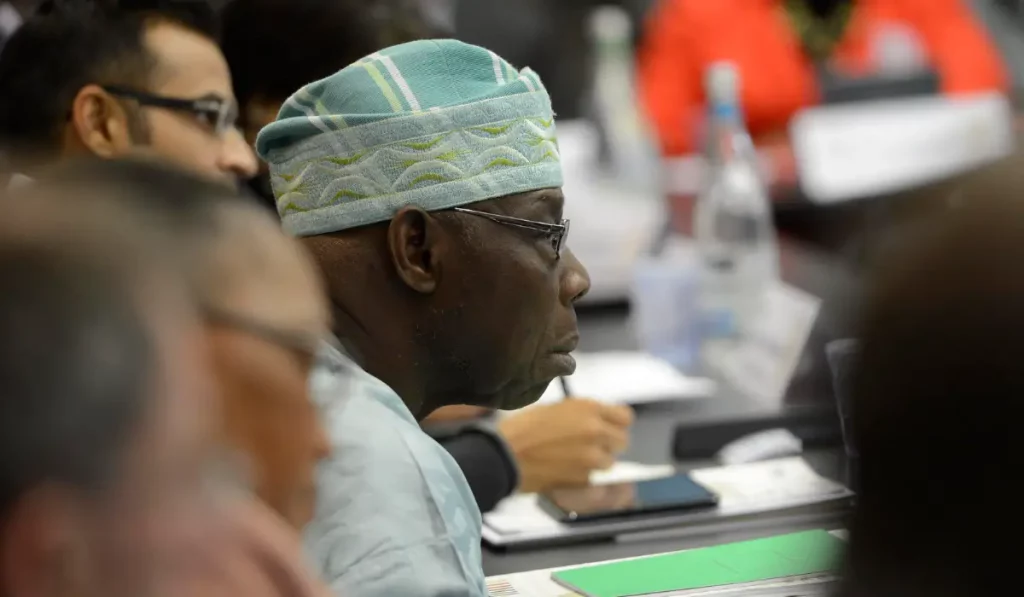
A strategic pathway for political development for African states in the complex new world order can be attained through effective and strategic continental leadership, which the AU has outlined in Agenda 2063. The AU Agenda 2063 is a shared strategic framework for inclusive growth and sustainable development. It was developed through a people-driven process and was adopted in January 2015 in Addis Ababa, Ethiopia, by the 24th AU Assembly of Heads of State and Government after extensive, 18-month consultations with all formations of African society. Agenda 2063 is anchored in the AU’s vision and is based on seven aspirations developed in the consultations, namely:
- A prosperous Africa based on inclusive growth and sustainable development;
- An integrated continent, politically united, based on the ideals of Pan Africanism and the vision of Africa’s Renaissance;
- An Africa of good governance, respect for human rights, justice and the rule of law;
- A peaceful and secure Africa;
- An Africa with a strong cultural identity, common heritage, values and ethics;
- An Africa whose development is people-driven, relying on the potential of African people, especially its women and youth, and caring for children; and
- Africa as a strong, united, resilient and influential global player and partner.3AUC (2015) ‘Agenda 2063: The Africa We Want’, popular version, p. 2.
To ensure effective implementation, the 24th Assembly of the AU requested the AU Commission (AUC) to finalise a draft First Ten-Year Implementation Plan for Agenda 2063 for consideration and adoption at the June 2015 meeting of the AU Policy Organs. The plan:
builds upon the Agenda 2063 Framework Document adopted in January 2015, and seeks to accelerate Africa’s political, social, economic and technological transformation while continuing the Pan African drive for self-determination, freedom, progress and collective prosperity. Covering the period 2014–2023, it is the first of a series of five ten year implementation plans to be developed to realise the vision of the “Africa We Want By 2063.”4AUC (2015) First Ten-Year Implementation Plan for Agenda 2063, p. 10; Collier, Paul (2015) ‘Security Threats Facing Africa and its Capacity to Respond’, Prism, 5(2), 30–41.
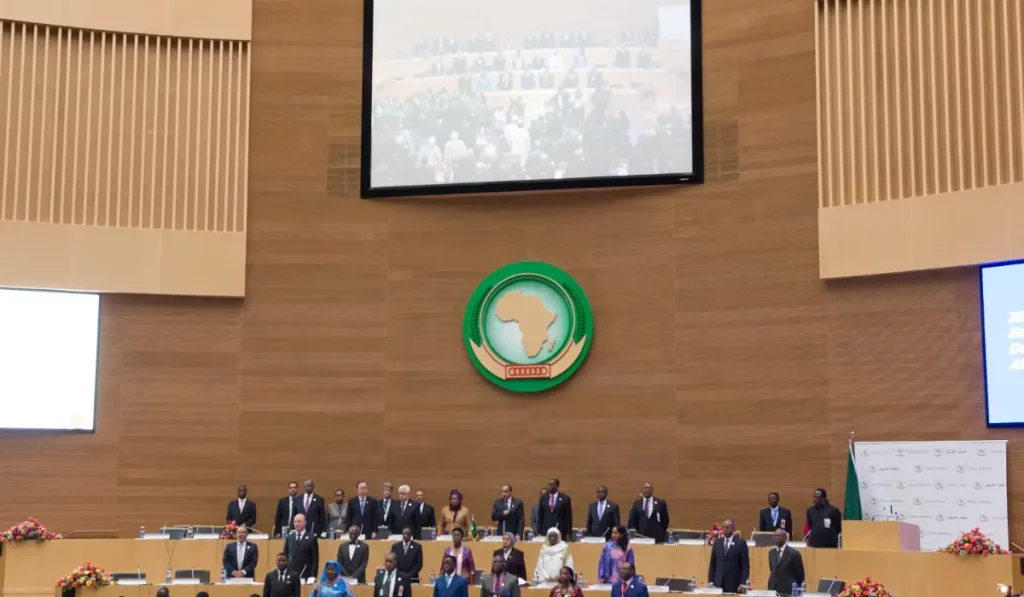
Significance of the study
This paper serves as an early warning, advocacy and policy advisory and argues for the formation of effective foreign and defence policy based on Pan-African and national interests to cushion the overriding and imperial interest of leading superpowers in African politics. The conflicting interests and influence of these international actors are fuelling civil armed conflicts through military support to belligerent groups and diplomatic backing to warring factions in civil unrest. The Sudan, Mali, Burkina Faso, Niger and Gabon political crises are a few examples. The United States, United Kingdom and European Union, on behalf of the West, and China and Russia, on behalf of the East, are the international state actors involved in African socio-political affairs. The increasing multi-polarity of the international system has severe geopolitical consequences for African states’ political development in the new world order, and we are seeing the manifestation of its realities in ongoing civil unrest in various parts of Africa with the tacit support of superpowers in armed and political crises.5Collier, Paul (2009) Wars, Guns, and Votes: Democracy in Dangerous Places, New York: Harper. These political crises are taking place in Burkina Faso, Cameroon, the CAR, the Democratic Republic of the Congo, Ethiopia, Mali, Mozambique, Nigeria, Senegal, Somalia, South Sudan and Sudan. Several armed groups fighting against government forces or against each other are involved in these conflicts.
A historical study of this nature is timely and important because of the renewed scramble for Africa by the superpowers, which has resulted in geopolitical tensions similar to that of the Cold War era. African leaders must take lessons from the political decisions and foreign policies of African states during the Cold War era to provide strategic leadership in silencing the guns and establishing peace and security, providing African solutions to African political problems and achieving the AU’s Agenda 2063 in the new world order.
This paper posits that various African states, under the auspices of the AU, have to synergise their respective foreign and defence policies to achieve the aspirations of the AU Agenda 2063 on silencing the guns for peace and regional stability. This unified front will help reduce the influence of international actors, unlike what took place during the Cold War era, in which various African governments were in alliance with superpowers, thereby jeopardising the continent’s security and political stability.
In addition, this paper reveals that Africa needs both long-term and short-term visions to address geopolitical crises and insecurity in Africa in order to achieve the aspirations outlined in Agenda 2063. Historical realities like post-colonial problems continue to affect continental collective progress; however, these cannot be used as excuses for poor leadership. Sadly, it has taken Africa relatively longer to rally the support of her citizens for her vision. For example, millions of Africans have not even heard of the Agenda 2063, nor do they know the contents of the document, despite its ratification in 2015. We need to factor our contextual realities into the agenda-setting.
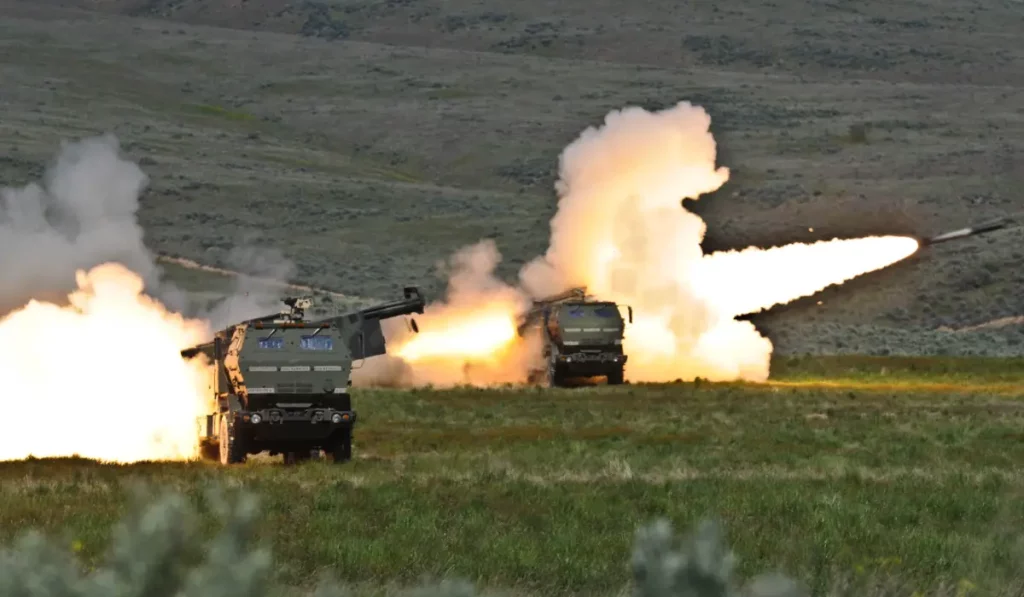
AU Agenda 2063 Goal of Silencing the Guns
At the meeting of the AU Assembly on the 50th Anniversary of the Organisation of African Unity/AU (OAU/AU) on 25 May 2013, African Heads of State and Government adopted a Solemn Declaration. In this landmark declaration, the Assembly expressed its determination to achieve the goal of a conflict-free Africa, make peace a reality for all people, rid the continent of civil war and conflict, human rights violations and humanitarian disasters, and prevent genocide. The African leaders also pledged not to bequeath the burden of conflicts upon the next generation of Africans and undertook to end all wars on the continent by 2020, a commitment that has taken practical expression in the AU initiative on ‘Silencing of the Guns: Pre-requisites for realising a conflict-free Africa by the year 2020.’6ACCORD (2014) ‘Silencing the guns, owning the future: Realising a conflict-free Africa’, report on the proceedings of the Fifth AU High-Level Retreat on the Promotion of Peace, Security and Stability in Africa, 21–23 October, Arusha, Tanzania, p. 13.
As a key component of Agenda 2063, ‘Silencing the Guns by 2020’ underlines the necessity of making the continent’s mechanisms for conflict prevention, management and resolution operational at all levels. A fully functional and operational African Peace and Security Architecture (APSA) is at the heart of this. Following the recommendations of the APSA Roadmap 2011–2013, priority has been given to pushing ahead with the operationalisation of all pillars of APSA, including those tasked with conflict prevention, peacemaking, peacekeeping and peace support operations, national reconciliation, and post-conflict reconstruction and development. These are in line with the Strategic Plan of the AU Commission 2014–2017, which posits that the overall goal of achieving integrated, prosperous and inclusive African states playing a dynamic role on the continent and in the global arena cannot be realised if durable peace and stability are not established.7AU Commission (2013) Strategic Plan 2014–2017, AU: Addis Ababa. In addition, improved harmonisation, collaboration and coordination between the AU and the Regional Economic Communities (RECs) and Regional Mechanisms (RMs) for Conflict Prevention, Management and Resolution in the full operationalisation of APSA remain key strategic and operational priorities.8AU (2008) ‘Protocol on Relations Between the African Union (AU) and the Regional Economic Communities (RECs)’, 27 January.
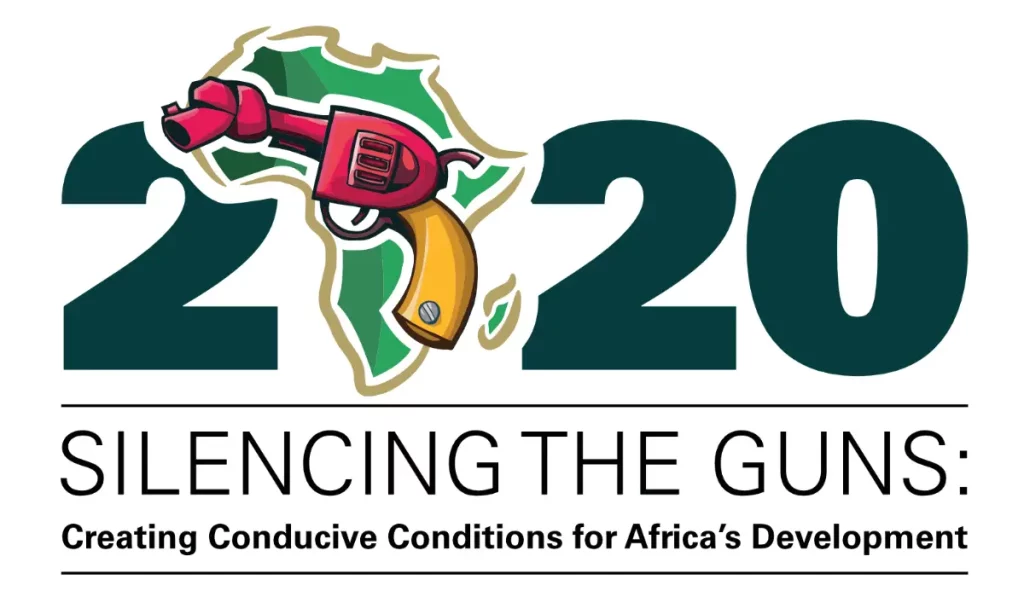
Recommendations
The AU must solve conflicts in Africa through the continental centenary aspirations of Agenda 2063 and its goal of silencing the guns in order to make strategic progress in all aspects of development. The AU should strive to mitigate the resurgence and incessant outbreaks of coups d’état. Africa has witnessed 216 coups, with 108 of them being successful. This is the most of any region, with about 488 attempted or successful coups carried out around the world since 1950. Out of 55 states on the African continent, at least one coup attempt since 1950 has occurred in 45 states. The African continent has seen a significant increase in coups since 2020, with eight coups in Gabon, Niger, Burkina Faso, Sudan, Guinea, Chad and Mali. According to Duzor and Williamson, ‘After Sudan’s coup in October 2021, United Nations Secretary-General Antonio Guterres spoke of “an epidemic” of coups, including the events in Africa,’ and ‘Coups have become increasingly limited to the poorest countries in the world, and the recent wave of coups fits into that.’9Duzor, Megan and Williamson, Brian (2022) ‘Coups in Africa: Less Frequent, More Deadly’, Soldier of Fortune, 3 May. World Bank estimates show that the gross domestic product (GDP) of Burkina Faso, Guinea, Mali and Chad were under $20 billion in 2020, and Sudan’s was a little over $21 billion in the same year. This can be compared with the 2020 United States GDP of $20 trillion, which was the highest worldwide.10Ibid.
States experiencing ongoing terrorism campaigns and insurgencies are also more likely to see coups take place, as well as those countries ‘whose leaders lack legitimacy in the eyes of their citizens or armed forces,’ leading to the emergence of terrorist and insurgent groups.11Ibid.
This recommendation is important because, in the new world order, Africa has found itself engulfed with ‘new wars’ as propounded by Mary Kaldor’s theory.12Kaldor, Mary (2013) ‘In Defence of New Wars’, Stability: International Journal of Security and Development, 2(1), art. 4. Her theory establishes that most conflicts in the world, and especially in Africa, will be triggered by internal disputes rather than inter-state conflict arising from poor management of ethnic diversity, resource wars, and most recently in the African context, ‘democratic’ coups by democratically elected heads of African States who often manipulate the national legislative arms of government to circumvent constituted term limits, which breeds military coups d’état.13Ibid.
From the history and successes of the AU’s peacekeeping interventions gleaned in the process of this research, this paper identifies that in the AU’s pursuit of a geopolitically stable and a secure Africa in the new world order, the AU should redirect African peacekeeping interventions to ensure and guarantee maximum security for African State citizens, rather than the expensive appeasement and restoration of long-serving regimes in the pursuit of restoring peace in the region.
This paper recommends that the AU, in the pursuit of the silencing the guns goal through Agenda 2063, should be proactive in ensuring that African Heads of State and Government adhere to the stipulated term limits, as enshrined in the constitution of the individual member states. This is because the inability of the AU to be proactive and forestall this problem will lead to geopolitical security tensions that threaten the region, including through civil protest and unrest, military clashes and coups, regional sanctions and blockades, and then two to three years of transition back to democratic rule. With this evident scenario of democratic backsliding, the AU should make it a priority to identify Heads of State with overdue constituted terms and intervene to entrench democracy and good governance in a pre-emptive bid to prevent civil unrest with potential geopolitical threats to the region.
This paper recommends that the AU, in a bid to actualise its peace and security mandate through Agenda 2063, should champion the campaign for real reform at the United Nations Security Council (UNSC). This should be at the top of the AU agenda, because of its crucial role in peace and security on the African continent. Wafula Okumu explains that in the Ezulwini Consensus adopted by the AU Foreign Ministers ‘as Africa’s common position on UN reform,’ the AU agreed that ‘Africa’s goal is to be fully represented in all the decision-making organs of the UN, particularly in the Security Council, which is the principal decision-making organ in matters relating to international peace and security,’ but nothing more than this has been decided yet.14Okumu, Wafula (2005) ‘Africa and the UN Security Council Permanent Seats’, Pambazuka News, 28 April; Interview between Ambassador Olusegun Akinsanya and the author, 13 October 2023, Lagos, Nigeria. The criteria in the UN report on the High-level Panel on Threats, Challenges and Change include that ‘new members of the UNSC must have contributed “most to the United Nations financially, militarily and diplomatically,” particularly through contributions to United Nations assessed budgets and through participation in mandated peace operations.’15Okumu, Wafula (2005) ‘Africa and the UN Security Council’, op. cit.
Igwe Kelechi Njoku is a Research Fellow at the Nigerian Institute of International Affairs. He is a foreign policy, geopolitical and diplomatic analyst in African politics. He is an enterprising young Nigerian with a distinction in his MA degree in History and Strategic Studies from the University of Lagos and a groundbreaking research thesis entitled ‘Geo-Politics and Security: AU 2063 Agenda in the New World Order.’

